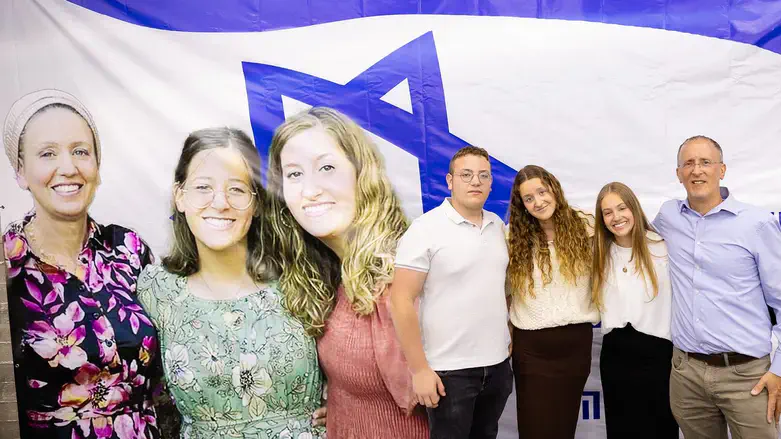
Many philosophers (Edmund Burke, Alexis de Tocqueville and G.K. Chesterton to name just three) have recognized the family as the crucible of civilization. Melanie Phillips noted in her latest book, The Builder’s Stone, that one of the greatest contributions of Judaism to Western moral architecture has been the centrality it gives to the institution of marriage and the sanctity of the family.
The Jewish home—anchored in the covenantal commitment between husband and wife, and nurtured by the rhythm of Torah life—is the original school of the spirit, the first forum of moral instruction, the primary place where values are handed on across generations.
Recent empirical research has confirmed what the Torah has always taught: that stable families, in which both parents remain committed to one another, tend to produce children who flourish. One study (British Educational Research Journal, 2015) showed that such families are associated with significantly greater levels of educational attainment. Another (Journal of Marriage and Family, 2019) demonstrated that they are more likely to pass on wealth and financial security across generations. A third (International Journal of Social Economics, 2022) found a strong correlation between family stability and the moral development of children.
This week’s parsha, Naso, contains a passage so familiar that its poetry sometimes hides its depth: the Priestly Blessing. Recited daily in the synagogue (by worshippers in the Diaspora and by Cohanim, in Israel), at weddings, and said by parents to their children on Friday nights, it is one of the oldest continuously used texts in all of human civilization. Three lines, fifteen words—yet they convey a vision of what it means to live under the shelter of the Divine Presence.
"May Hashem bless you and protect you."
"May Hashem cause His face to shine upon you and be gracious to you."
"May Hashem lift up His face toward you and grant you peace."
According to the Kli Yakar, these three lines mirror the three partners in the creation of a child: the father, the mother, and God. It is a blessing not just for individuals, but for the family unit itself—the foundational structure of continuity.
Rashi, ever the master of plain meaning, explains the first blessing as a prayer for material prosperity—“May God grant you wealth”—and for its safekeeping. In other words, not only that you be blessed, but that your blessing endures. That is the very definition of intergenerational wealth—not a passing windfall but a guarded legacy.
The Sforno, with his characteristic fusion of Torah and humanism, reads the second verse as a blessing for enlightenment—that we should be illuminated by the light of Torah. n a surprising turn, the Bechor Shor reinterprets the phrase “וִיחֻנֶּךָּ” not as “grace,” but as dwelling—that the light of knowledge should not merely pass through us but remain with us, abide with us, and be transmitted. Here, too, we see the theme of continuity: education that endures.
And what of the third and final verse?
To “lift one’s face” to another is a Biblical idiom denoting recognition and affirmation. It is the Divine nod of approval, not for achievement alone, but for moral worthiness. When that moral worth is cultivated in one generation and passed on to the next, the result is the ultimate blessing: Shalom. Not merely peace meaning the absence of conflict, but peace as wholeness, harmony, and integrity.
This is the quiet power of the Jewish family. Through it we do not merely raise children. We raise a future. Through it, the covenant is not just remembered—it is renewed. In a world that prizes novelty but often forgets legacy, the Priestly Blessing reminds us that continuity is itself a spiritual achievement.
The Torah described what the modern world is now relearning: that civilizations are built by families, sustained by education, enriched by shared values, and blessed—ultimately—by the presence of God. May we, through strong homes and steadfast commitments, be worthy of this ancient and enduring blessing.
Rabbi Leo Dee is an educator living in Efrat. His book “Transforming the World: The Jewish Impact on Modernity” was republished in English and Hebrew in memory of his wife Lucy and daughters Maia and Rina, who were murdered by terrorists in April 2023.